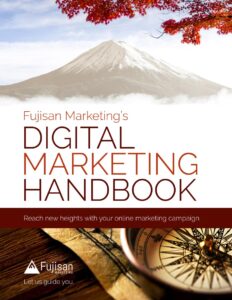Advertising for healthcare, online or otherwise, can be difficult. Unlike many industries where advertising works to promote your product or service, advertising for healthcare hardly gets people thinking, “Gee, I could really go for a cholesterol test right now.”
Almost all healthcare products and services are relatively immediate in need – either someone needs it now or they don’t. For example, if you break your leg, your priority is seeing a medical professional as soon as possible so you can get on the road to recovery. Because of this, healthcare marketers work more to help potential patients find a provider in the moment they need one the most, rather than convincing someone to pop in for a colonoscopy in their free time.
A second factor that complicates healthcare advertising is the additional rules and regulations put in place by Google that surround this category. So, let’s talk about what you need to consider when you’re advertising for healthcare clients using paid search advertising.
Overall PPC Strategy
What are you advertising?
Are you working with an orthopedic surgeon who wants to highlight how broken legs treated by them heal in record time? Or a dentist who really wants to see more people for Invisalign treatment? Consider the specific services your medical client provides and build out campaigns to target potential patients.
Who is your audience?
In addition to knowing which products and services your client wants to promote, you need to consider the audiences to whom you advertise. A dermatologist will have different audiences in mind than a dentist, for instance. If your client is a pediatric dentist, think about the needs a family will have when choosing a dental provider. If your client is a podiatrist, think of the terms their ideal patients would use to find them.
What are your overall goals/objectives?
In addition to reaching the right audience, you need to consider the overall goals and objectives that your client has and how they are evaluating the success of your PPC campaign. Do they want to promote a new product or service or keep current patients coming back? Maybe they opened up a new office in the town over and want to increase brand awareness for the expansion? Make sure to ask your client what success looks like to them.
What conversion are you measuring with PPC?
Now that you’ve learned what success looks like to your client, you can suggest ways to use the website to help accomplish their goals. If your campaign is a lead generation campaign, you might consider tracking phone calls or contact form submissions to show that people contacting your client are being driven from the PPC campaigns. Depending on the website, patients may even be able to schedule appointments via the website.
Who are your regional competitors and how are they using PPC?
Ah, a client’s oft-favored discussion point: what types of marketing their competitors do. As part of your initial work with your new healthcare client, get some insight into other providers in the area. Consider how many providers in their area provide the same services, especially if they have decent online presence, and how long people may travel for an appointment. For example, people will drive further for a rare disease specialist than they might for a twice-yearly teeth cleaning. This will help you especially with estimating search volume and costs-per-click as part of your keyword research.
Answering these questions is key for any high-performing healthcare PPC program. Some (or all) of these questions might sound basic, but knowing these answers gives you a foundation upon which to develop, build and implement a successful PPC campaign.
Here are some areas to focus on…
Target Audience
Like we talk about in the previous section, it’s vital to consider the audience at the other end of your advertisements. Determining who your audiences are will help you specify and compartmentalize who you’re targeting.
Age
The age of a searcher is highly relevant to their healthcare needs. For example, if your client is the head of a pediatric medical clinic, you’ll probably target parents with children, so possibly people in their 20s through 40s. This target demographic differs from a gastroenterology center, which would be looking for patients in their late-40s through 60s when they need to schedule colonoscopies as part of their health checkups.
Gender & Sex
Similarly, the gender and sex of your audiences are important to consider. If you’re advertising a gynecologist, your target audience is women. For a hernia specialist we could be targeting both men and women. In many cases, women are the healthcare decision makers for their families, and here at Fujisan Marketing, we see that women engage with our healthcare ads more than men. Similar to our example of targeting parents on behalf of a pediatric dentist, you have to consider who else may be helping the patient make their healthcare decisions.
New to the Area
Lastly, consider what people new to the area might search for when trying to find a new doctor. This can be a great source of new patients for a healthcare provider. In this instance, we find service + location keyword targeting to work well reaching out to newcomers in an area who might search for “nutritionist in north Seattle” or “seattle dentist open on saturdays”
Device Targeting

You will need to determine what device types are being used by your target for your specific services. A high percentage of healthcare-related searches take place on a mobile device. While that doesn’t inherently change your strategy, here are a few things you should consider.
Mobile-Friendly Landing Page
Consider creating an ad landing page that is mobile friendly. Remember those times you’ve been on your phone, clicked a link, and been taken to a page that’s an absolute terror to navigate on that device?
Easy Pathway for Conversion on Mobile
You want to make sure the pathway to conversion isn’t a pain in the neck for a mobile user. It should be easy to book appointments or contact your office through your mobile landing experience, otherwise you’re missing out on business simply because people who want to use your services either find it too difficult or in extreme cases of poor site planning can’t at all.
Location Targeting
Another determinant is the location you wish to target. The basic version of this is that it doesn’t do you any good to target users who are more than 30 miles away if you are not a specialty provider. Targeting your demographic that lives within a 5-mile radius of your location is critical. However, there are other ways to utilize location targeting.
Target Specific Locations for Specific Ages.
Remember how you have a specific audience age range that we discussed above? Well, that age range tends to live in specific areas, and by identifying the location where they’re concentrated, you can more effectively target the people who are looking for your service when they are looking for it.
Ad Scheduling
Lastly, all PPC campaigns need to determine when ads will be scheduled. Running a higher volume of ads during office hours, for example, ensures those interacting with the ads have the ability to call your office and potentially set up an appointment right then and there. If that is your conversion point.
For PPC campaigns for healthcare, you may consider running your campaigns on the Google Search Network, the Google Display Network or both. For either of these two networks, here are other important components to keep in mind when developing and launching your campaigns:
Important Components of PPC Campaigns
Keyword Research
Let’s look at what is important at the keyword level. Choosing the right keywords is a sophisticated process. Here are a few things to consider.
Explore your Google Analytics account.
Looking in your Google Analytics account under the Acquisition > Search Console > Queries. You can use this information to see which terms are currently ranking organically? Usually, these terms coincide with the keywords that we want to use in paid search campaigns. If you don’t have a Google Search Console account, read the “Keyword Rankings” section in our blog post “How To Measure, Quantify, and Track SEO Progress.”
Consider search queries people use for informational searches.
What are the keywords that trigger ads when people search for a medical condition or treatment like “symptoms of asthma.” Could our possible patients be using questions to find out more information?
Consider use of medical jargon.
If you’re an ENT office, a search for “otolaryngology” is relevant, but so is the more layman’s term search of “ear nose and throat doctor.” Neglecting either of those means losing out on a whole group of people based simply on their vocabulary. Always consider which terms people would use to find you and make sure those words and phrasing are represented on the client’s website and in their keywords and ad copy.
Consider healthcare needs by time of year.
Another keyword factor to consider is the tendency of healthcare needs based on the time of year. If it’s springtime, searches for “hay fever” or “cottonwood allergies” will be frequent, whereas November (and the rest of flu season) will see spikes of “flu symptoms” searches, and January may see New Year’s resolutions-related healthcare searches.
Ad Copy
Other than the keywords, the ad copy is your elevator pitch to potential patients. Users aren’t going to spend a lot of time reading a War and Peace-length, convoluted ad. Even if they would, Google ads have a character limit — pick your characters wisely. An ad that wastes precious space on irrelevant or fluffy copy is a waste of space.
Use a clear call to action.
Use phrasing like, “Book an Appointment Today” or “Call Our Team Today.” Also consider value propositions like “Now Accepting New Patients” or “Weekend Appointments Available.” Anything that sets your client apart from their competition and guiding users on their journey. Speaking of competitors…
Consider competitors ad copy.
Also, consider the copy your competition uses for their ads. Identify their strengths and weaknesses, and then take the next step by deciding how to differentiate your copy and distinguish yourselves from competitors.
Ad Extensions
Ad extensions are great tools you can use to highlight anything you might not include in the ad copy. There are several types of ad extensions to help include more vital information for a healthcare provider.
Call Extensions
This ad extension allows users to call a business directly from an ad. This means that users will bypass the website and convert directly from an ad, eliminating other steps they would normally have to take.
Messaging Extensions
This option allows users to send a text message to a business directly from an ad, similar to a call extension. The healthcare provider can respond via text message or forward these leads to an email and correspond from there.
Location Extensions
This is a critically-important extension for healthcare. It allows potential patients to see where the provider’s office is located at the bottom of the ad and make decisions based off their proximity to your business. This extension requires that you verify your Google My Business profile. After that’s complete, you can import that information into the Google Ads account for that provider.
Display Campaigns for PPC
Display Images
Naturally, display campaigns for PPC differ from search campaign ads in that, while they do include copy, their emphasis is on visual ads. Therefore, it’s important to determine which types of images in which sizes resonate with your audience.
Topics
This can vary based on a handful of factors, including the type of medical practice or your target age range and gender. The latter can be especially important since people connect more with depictions of people who they see as similar to themselves (or, as you’ll notice in TV ads for prescription medications, with depictions of people who they see as cooler, slightly younger, and better-looking versions of themselves). Other than those, you can also vary your imagery based on relevant topics and in-market audiences.
Limitations of PPC for Healthcare
Of course, every ad type and industry have their limitations. In the case of the healthcare industry, PPC is very useful, but there are a few restrictions.
Audience Lists
For one, per Google Ads policy and advertising regulations, healthcare advertising can’t remarket to audience lists; in other words, a cache of past website visitors or users from an email list are off-limits.
Prescription Medications
Similarly, there are certain limitations for Google Ads regarding keywords, ad content, or landing pages related to prescriptions and medication. These restrictions vary by country, and you can learn more about the specifics here.
Just What the Doctor Ordered
Here are just a few of our thoughts on how to plan, build, and manage PPC campaigns for healthcare. If you would like more in-depth advice or help, please send us a note. We’d love to hear from you!





